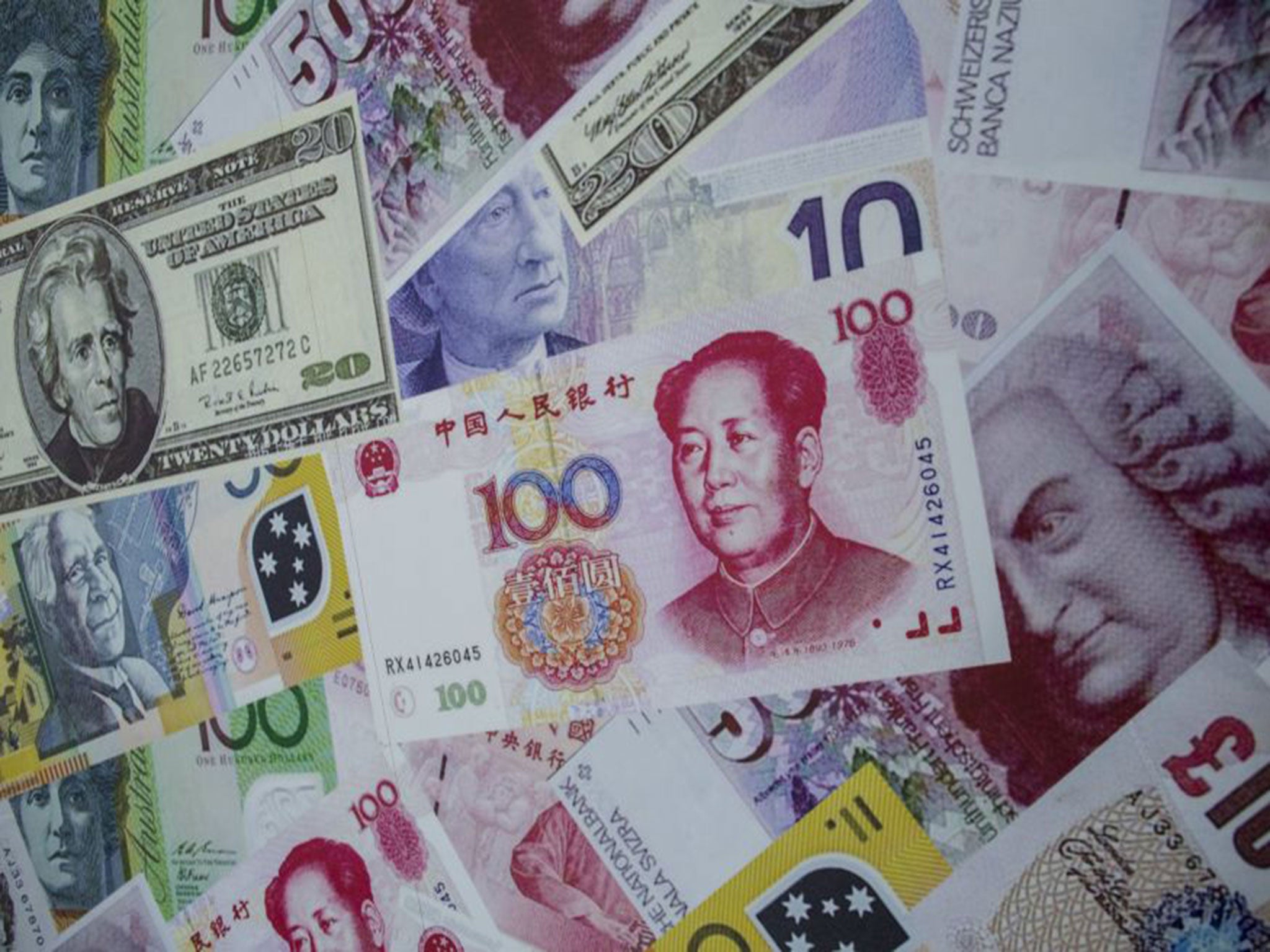China devalues yuan for the third day running
Central bank cuts currency by 1.1%, fuelling fears of a currency war

China’s central bank has devalued the yuan for the third day running, adding to fears of a currency war.
The People’s Bank of China cut the reference rate of the yuan against the dollar by 1 per cent – smaller than the cuts that shocked financial markets earlier this week.
It is a continuation of what the bank on Tuesday called a “one-time correction” of almost 2 per cent, part of a move to make the yuan closer to a free-floating currency whose value is determined by the markets.
Devaluation is aimed at boosting struggling Chinese exports, and is the latest in a series of measures by the central bank to attempt to kickstart sluggish growth.
The exchange-rate changes are also aimed at aiding the adoption of the yuan as a reserve currency by the International Monetary Fund.
Thursday’s announcement means that 6.4010 yuan buys one US dollar, a 1.1 per cent drop in value compared to Wednesday’s 6.3306.
Stockmarkets in London, Paris and Frankfurt were jittery following Wednesday’s second devaluation announcement, all closing down, though the FTSE 100 was up slightly on Thursday.
Asian markets were mixed, though China’s Shanghai index was up 1.76 per cent on the day.
Many economists said the decline in the yuan was too small to help Chinese exports due to weak global demand.
But the change fuelled concern the yuan might fall further, giving Chinese traders a price advantage over foreign rivals and possibly igniting a "currency war" if other governments fight back by depressing their own exchange rates.
Chinese officials have said suggestions Beijing wants to depreciate the yuan by up to 10 per cent are "unfounded."
Subscribe to Independent Premium to bookmark this article
Want to bookmark your favourite articles and stories to read or reference later? Start your Independent Premium subscription today.

Join our commenting forum
Join thought-provoking conversations, follow other Independent readers and see their replies